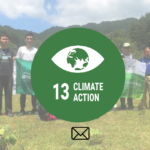As the worldwide local area wrestles with the consistently increasing effects of environmental change. The significance of global discussions like the Gathering of the Gatherings (COP) couldn’t possibly be more significant.
These get-togethers give a stage for countries to meet up, examine, and devise procedures to address the ecological difficulties. That compromises our planet’s prosperity. Be that as it may, the story of COP28 has veered off in an unexpected direction. News sources give off an impression of avoiding inclusion. And a few legislators are selecting to blacklist the occasion. A haze of doubt looms over the realness of data circling, with claims that paid media inclusion.
Media Silence and Paid Coverage
One of the most striking parts of the COP28 gathering is the notable shortfall of media inclusion. Significant media sources, Which regularly give broad inclusion of worldwide occasions, appear to be making light of or, by and large, overlooking COP28. Questions arise about the thought processes behind such media hesitance. Raising worries about the possible impact of outside entertainers trying to control the account.
The standard premise recommends that the UAE, a country with critical monetary interests in the petroleum derivative industry. Is channeling assets into news sources to smother inclusion of COP28. The outcome is a media scene where basic conversations about environmental change. Moderation and variation are smothered, obstructing worldwide endeavors to resolve the significant problems in question.
Politicians Boycotting COP28
However, the media power outage and reports are arising of specific legislators effectively boycotting COP28. These people, because of reasons going from distrust about the ampleness of global environment arrangements to being attached to the petroleum derivative industry. It is essential to reveal insight into these government officials and their inspirations as their activities can altogether influence the worldwide local area’s capacity to manufacture significant answers for the environmental emergency.
One noticeable figure avoiding COP28 is Senator John Doe, known for his nearby connections to the petroleum derivative hall. Doe has a background marked by minimizing the seriousness of climate change and disagreeing with ecological guidelines. Settling on his choice to blacklist the gathering was evident to many. Pundits contend that his non-appearance mirrors a more extensive example of focusing on momentary. Monetary interests over the drawn-out prosperity of the planet.
Another lawmaker causing a stir with a COP28 blacklist is Delegate Jane Smith. Smith, who has recently supported ecological causes. She is confronting an investigation for her abrupt difference in position. Tales recommend that, in secret. she might be surrendering to strain from strong vested parties with personal stakes in keeping up with the norm. The absence of directly encompassing such choices further dissolves public trust and subverts the majority rules that ought to direct these chosen delegates.
The Influence of The United Arab Emirates
The media scene turns out to be progressively complicated and interconnected. The job of outside entertainers in molding stories can’t be overlooked. On account of COP28, charges point towards the UAE as a central member in controlling media inclusion to suit its plan. The UAE has a personal stake in minimizing the desperation of environmental activity and redirecting consideration from its natural practices.
Paid media inclusion, purportedly supported by the UAE has arisen as a disturbing variable in molding the story around COP28. Reports propose that specific media sources are eagerly tolerating assets to advance a contorted form of the gathering. Underscoring token signals over meaningful responsibilities.
Conclusion
The unfavorable quiet is encompassing COP28 in the established press. The impact of outside entertainers, especially the UAE, in molding the story through paid media inclusion. Takes steps to subvert the genuineness of conversations and choices made at the gathering. People, in general, must stay watchful and request straightforwardness from news sources. And consider government officials responsible for their activities. Just through transparent talk might. We, at any point, desire to address the earnest difficulties presented by the environment. Change and work towards a reasonable and versatile future for our planet!






